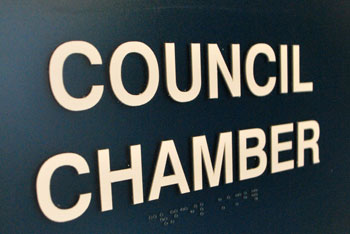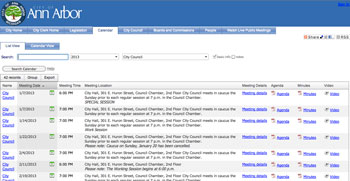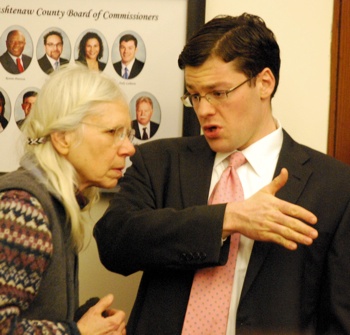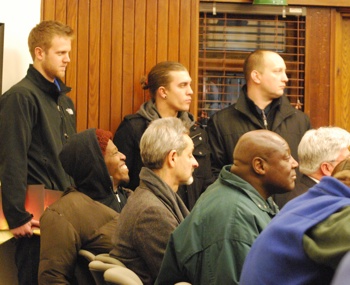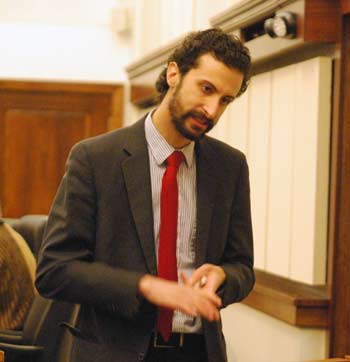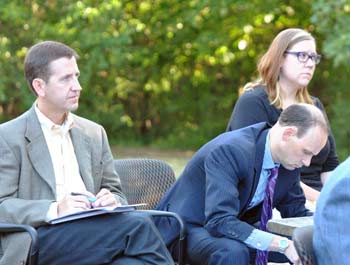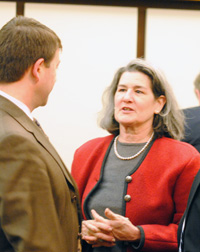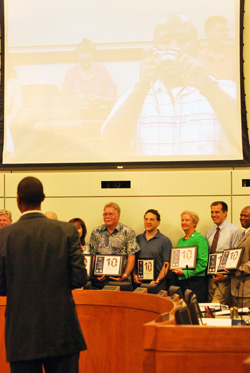July 7, 2014: Council Live Updates
Editor’s note: This “Live Updates” coverage of the Ann Arbor city council’s July 7, 2014 meeting includes all the material from an earlier preview article published last week. The intent is to facilitate easier navigation from the live updates section to background material already in this file.
The Ann Arbor city council’s first meeting of the fiscal year is also the next-to-last one before the Aug. 5, 2014 primary elections for city council and mayor.
A month before the dog days actually begin, the council will be considering as part of its July 7 agenda a resolution that would pay Washtenaw County $135,570 for animal control services. The county in turn contracts with the Humane Society of Huron Valley for those services. This is a new arrangement, based on recommendations from a 2012 county task force. The idea is that local governments in the county with their own dog licensing programs, which generate revenue through licensing, should shoulder part of the cost of the county’s animal control contract. Ann Arbor has its own dog licensing program.
The July 7 agenda is heavy with items related to infrastructure. Three special assessments for the construction of new sidewalks are on the agenda for final approval: Stone School Road, Barton Drive and Scio Church Road. And the council will be considering approval of contracts for street repair associated with utilities work, the replacement of a clarifier at the drinking water treatment plan, the replacement of liners for the swimming pools at Buhr and Fuller parks, and for monitoring work at the now-dormant Ann Arbor city landfill.
Several development items also appear on the July 7 agenda. The rezoning of three Ann Arbor Housing Commission (AAHC) properties will be given final consideration in connection with major renovations and improvements the commission is making to its inventory – at Baker Commons, Green/Baxter Court Apartments, and Maple Meadows. Initial approval for rezoning of another AAHC property is also on the council’s agenda: North Maple Estates.
In addition to the AAHC properties, the council will consider rezoning for parcels on Research Park Drive, in the southern part of the city, and a site plan for the expansion of Rudolf Steiner High School on the city’s north side.
The council will give initial consideration to changes in the ordinance that defines how city boards and commissions are appointed – changes that focus on the environmental commission. The changes involve clarifications of the nomination process and other housekeeping issues. The council will also consider confirmation of three appointments to the environmental commission: Allison Skinner, Benjamin Muth and Mark Clevey.
The summertime theme of the agenda is reflected in the approval of temporary outdoor sales and consumption of alcohol for several downtown businesses during the art fairs, which run from July 16-19. A permanent liquor license for Ruth’s Chris Steakhouse also appears on the council’s agenda. The theme of transition from summer to fall is reflected on the council’s July 7 agenda in the set of street closing approvals, which include closings around the University of Michigan stadium for home football games.
This article includes a more detailed preview of many of these agenda items. More details on other agenda items are available on the city’s online Legistar system. The meeting proceedings can be followed Monday evening live on Channel 16, streamed online by Community Television Network starting at 7 p.m.
The Chronicle will be filing live updates from city council chambers during the meeting, published in this article below the preview material. Click here to skip the preview section and go directly to the live updates. The meeting is scheduled to start at 7 p.m. [Full Story]




